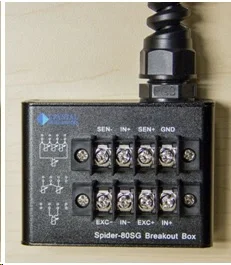CI Testing Lab Locations

CI Silicon Valley Testing Lab

CI Los Angeles Testing Lab - click to view lab equipment

CI North Carolina Testing Lab - click to view lab equipment
Mechanical Endurance Testing
CI Testing Labs provides mechanical endurance testing services to emulate a product life cycle. Testing for mechanical durability is performed according to industry standards and can include fatigue testing, push-pull-press testing, and open-close testing.
Mechanical endurance testing is designed to calculate a product’s reactions to extreme stress in controlled testing conditions. CI Labs also provide in-house custom fixture design and fabrication services for mechanical endurance tests.
What is mechanical endurance testing?
Electronics, automotive parts, and other heavy-use items endure extreme daily stress levels. Repeated stress is simulated with a combination of vibration testing, shock stress testing, and strain measurements. Mechanical endurance testing simulates damage to equate an entire product lifespan. Lab engineers observe memory consumption and performance quality while the specimen undergoes simulated conditions typical to its daily usage.
How does mechanical endurance testing work?
Specimens are received at the CI mechanical endurance testing lab, where engineers perform a variety of quality control tests using gauges and vibration testing equipment. Different tests are used to evaluate various aspects of a product’s strength and endurance, and testing can be customized to meet individual industry standards.
During testing, technicians observe a variety of factors that contribute to the mechanical longevity of a part or product . A combination of various testing methods evaluates nearly all aspects of a product’s functionality.
Some potential failure methods targeted through mechanical testing include:
Adhesion and bond strength
Flexural strength and fatigue
Tensile strength and impact
Flexibility
Material toughness
Functionality
Flammability
Mechanical wear and circuit shortages
Memory and performance quality
Overall durability
Testing can last days or weeks, depending on the type of product and methods used. After a thorough analysis of the system’s reaction, results are shared with the manufacturer. Testing engineers and clients then work together to fix any outstanding issues before the product’s release.
Mechanical Testing Types
Common types of mechanical endurance testing include fatigue, push-pull-press and open-close testing.
Fatigue testing: determines localized and progressive structural damage caused when a material experiences cyclic loading. Tests measure the product’s resistance to cyclic stress over several stress levels.
Push-pull-press testing: also known as tensile, compression and impact testing, push-pull-press tests calculate a material’s resistance to heavy impact from tension or compression. Tests measure the force required to pull, push, or press an object to its breaking point, which determines the maximum amount of tensile stress a material can undergo before failure.
Open-close testing: hinges on doors, windows, flip phones, garage door openers and many other products require extensive testing to ensure durability over many years. Open-close testing machinery quickly simulates years of use.




